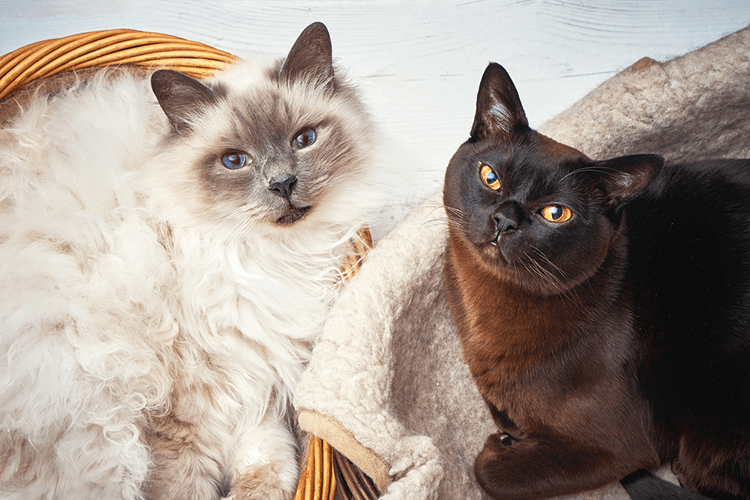Most cat moms and dads spend an abnormal amount of time assessing the general disposition of their feline family member. Why does Chalky refuse to eat his new food? How come Mr. Darcy doesn’t sleep on the bed anymore? Has General Whiskers outgrown his love of catnip? These and more questions occupy the minds of cat parents, as their lil’ fuzzes’ expressions can’t hide their rainbow of emotions, including fear, joy, disdain, and crazy. But how do you know if your furry companion actually enjoys companionship, or if he just wants to be alone? There are some obvious signs to look out for.
Does Buster Just want to be Alone?
It’s a common misconception that cats prefer to be alone. While they are independent creatures, they are living beings and still require love, attention, and affection. However, pay close attention to the various personality quirks or habits that might indicate whether or not your cat wants to be alone. Do they leave the room when other animals or people are present? Do they appear happiest when they are curled up alone on their favorite chair? Do their eating or grooming habits change when there is more commotion? Other signs include excessive vocalization, destruction, or spraying. Pay attention to these signs, and always keep a safe space in the home that your cat can escape to in order to be alone, if necessary.
Patches Prefers to Party
As with a desire to be alone, cats can often experience the same isolation that humans do. This isolation can lead to depression in your lil’ fuzz if they are social creatures by nature. Again, if your cat appears disinterested in eating or grooming themselves, they may need companionship in their lives. On the flip side,Additionally, notice if your cat constantly follows you around, acts clingy, or their mood shifts. They might need TLC or simply some good old playtime with a pal.
Keep It Age Appropriate
If, after a personality inventory, you decide to adopt a new furry family member, take a minute to notice their energy level. Are they young and playful? Most kittens are open-minded, fearless, and won’t discriminate. They only want to play, and will normally interact with your other cats, dogs, or pets. Try to socialize kittens when they are young, and their preference for companionship will develop naturally. Additionally, pair your beloved fuzz with an age-appropriate, gender-appropriate companion. Try to match kittens with other kittens, who need more playtime, and senior cats with companions close in age, so that they aren’t stressed. When it comes to gender, many cat owners prefer to find a companion of the same sex. However, pay attention to personality first, and always spay or neuter your cats.
Other Ways to Keep Kitty Occupied
As being a hunter-gatherer is in their nature, indoor cats often experience bouts of loneliness with or without a companion. If you find that this is true in your furry family’s case, try and keep kitty occupied with various sources of entertainment they can access all day. Cats gravitate toward the crinkly sounds and shine of mylar balls. Keep scratch pads or sisal posts around the house, so kitty can self-sooth when he’s feeling lonely. Additionally, a great kitty grass or catnip plant can help him chill out when he’s feeling stressed. What it comes down to is understanding that your cats have similar tendencies as you – including having quality bonding time and sharing their love.






